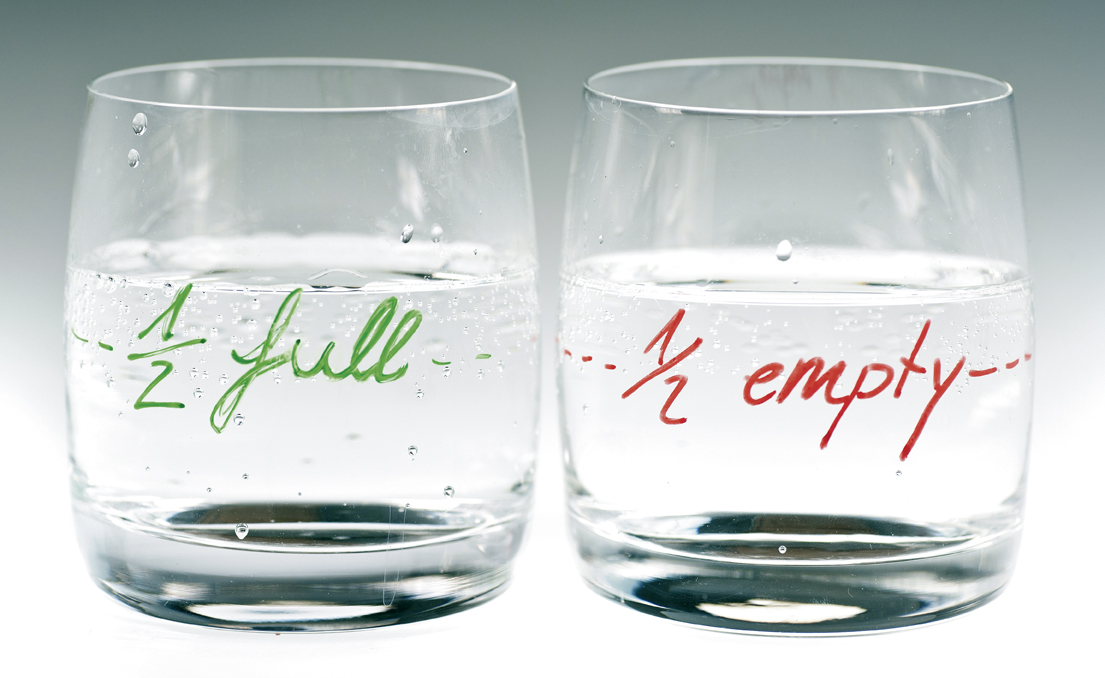Beyond Insurance
By F. Scott Addis, CPCU, CRA, CBWA, TRA, ASA
THANKSGIVING 2020 … GRATITUDE IN THE MIDST OF COVID-19
Is the glass half-full or half-empty?
[G]ratitude shifts your focus from what your world lacks to the abundance that is already present.
Sometimes we forget that Thanksgiving got its name for a specific reason; it is a time when we are meant to reflect and show gratitude for all the good things in our lives … shifting out of a scarcity mindset into one of abundance and contentment.
Would you agree that it has been particularly difficult to show gratitude in 2020? Thousands of people have lost their lives to the coronavirus, and millions have lost their jobs, putting them in challenging financial situations. In response to the virus and attempt to reduce the infection rate, most of us have been isolated at home. While physically distancing ourselves from one another may be necessary, the lack of social interaction has impacted mental health. The Substance Abuse and Mental Health Services Administration (SAMSHA) reported an 891% increase in calls from this time last year. The pandemic, along with related social and economic conditions—including issues of injustice brought to light by our country’s racial inequities—has caused many people to feel psychologically defeated. It is sad to say that many people are feeling myriad negative emotions on a daily basis, including anxiety, sadness, depression, helplessness, loneliness, and sometimes panic. There is no sugar coating our current situation—many of us are suffering as never before.
In a December 2014 Rough Notes article entitled “The Attitude of Gratitude … Holidays 365 Days a Year,” I defined gratitude as an internally generated capability that allows you to discover unlimited meaning and value in every situation and relation-ship in life. Simply put, gratitude shifts your focus from what your world lacks to the abundance already present. You may be interested to know that behavioral and psychological research provide evidence of both physical and mental life improvements that stem from choosing an attitude of gratitude. Giving thanks will make you more resilient, improve your health, reduce stress, and strengthen relationships.
Tom Rath and Donald O. Clifton, Ph.D., authors of How Full is Your Bucket?, surveyed more than 4 million people worldwide on this topic. Their analysis, which included more than 10,000 business units and more than 30 industries, found that individuals who received regular recognition and praise—expressions of gratitude for a job well done—experienced the following changes:
- Increased individual productivity
- Increased engagement with their colleagues
- Increased employee retention
- Higher loyalty and satisfaction scores from their customers
- Better safety records and fewer accidents
Author Angeles Arrien wrote, “Gratitude is a feeling that spontaneously emerges from within. However, it is not simply an emotional response; it is also a choice that you make.” That being said, I would like to suggest six exercises that will empower you to demonstrate and reap the rewards of gratitude in the midst of the pandemic.
Exercise 1—Start with WHY!
Simon Sinek, motivational speaker, author, and marketing consultant, has made the foundation of his work the examination of “WHY”—the exploration of who you are and what inspires you to act. Gratitude for your profession in the midst of the pandemic will increase as you answer the following three questions:
- What is my cause in the business of insurance and risk management?
- What gives meaning to my work?
- What inspires me to act?
Today’s consumer desperately wants you to:
- Recognize their pain
- Demonstrate empathy
- Appreciate the impact that the pandemic has had on their family, industry, and business
- Identify their current stage(s) within the pandemic:
- Pandemic recovery
- Return-to-normal efforts
- Dealing with risks and uncertainties
- Reach out to them. Actively listen. Design a plan that gives them comfort and confidence with their issues.
- Deliver process-oriented solutions to manage their risks
Starting with WHY is the first step in gaining an attitude of gratitude!
Exercise 2—Growth mindset
A mindset is a set of assumptions, methods, beliefs, and attitudes that you hold. It is so powerful that it orients the way you think, act, feel, and handle situations. Both internal and external forces shape your mindset. COVID-19 is an example of an external force. Internal forces include your skillset, attitude, and beliefs.
The following growth mindset exercise may be of value. To what degree do you agree with the following statements?
- There is a solution for every problem.
- My glass is always half-full, rather than half-empty.
- I possess the ability to comprehend emotions in myself and others.
If you agree with the above statements, you demonstrate a growth mindset … a necessity to move through the pandemic.
Exercise 3—Resilience
Resilience is that amazing skill that enables you to recover quickly from difficulties. While research indicates that the coping skills of people vary drastically after a crisis, resilient individuals are able to manage their feelings, keep perspectives in check, and maintain control as they tackle problems. The following affirmations will help reframe your mindset toward resilience so you can practice cultivating presence and competence in any situation:
- In a crisis or chaotic situation, I calm myself and focus on the task at hand.
- I am durable. I hold up well during tough times.
- I adapt quickly to new developments. I bounce back well from adversity.
Exercise 4—Empathy
Possibly there is no more essential quality that evidences gratitude than empathy. What is empathy and why is it so important? It is best defined as the action of understanding, being aware of, being sensitive to, and vicariously experiencing the feelings and thoughts of another person. Henry Ford once said, “If there is any great secret of success in life, it lies in the ability to put yourself in another person’s place and see things from his or her point of view.”
If you agree with the following statements, you score high on the empathy scale.
- In the midst of COVID-19, I demonstrate compassion for others who are less fortunate.
- I possess a high level of emotional intelligence.
- I always see things from the other person’s point of view.
Gratitude and empathy go hand in hand. If you performed well on the empathy exercise, you are consciously making choices that positively impact others as well as you.
Exercise 5—Relational GPS
One of my favorite books is Business Relationships that Last by Ed Wallace, in which he teaches us about a simple yet powerful concept—Relational GPS. Getting where you want to go in life is contingent upon your ability to develop and nurture relationships with clients, colleagues, prospects, centers of influence, and community. GPS stands for Goals, Passions, and Struggles. Can you respond affirmatively to the following questions? If so, you have mastered Relational GPS.
- In the midst of COVID-19, do I have a grasp of the goals of those whom I serve?
- Do I share personal and professional causes for which my community cares greatly?
- Have I made it a point to comprehend the struggles that are preventing others from reaching their goals and passions in the midst of the pandemic?
Exercise 6—Employee and client appreciation
Maintaining your agency’s culture can be difficult while many are still working remotely. The same goes for fostering deep relationships with your clients. Under normal circumstances, you could express your gratitude face to face by sharing a meal in the lunchroom with a colleague or scheduling a visit to a client’s office.
Ask yourself the following reflective questions and think of creative solutions if you answered negatively:
- Have I made sure that my colleagues are not feeling isolated? How can I do a better job of communicating with my teammates?
- Have I expressed how grateful I am to my clients? Do they know how often I feel thankful they have chosen me to serve as their advisor?
Showing gratitude doesn’t cost much money or time. A simple handwritten note or email asking, “How are you?” can really go a long way in showing you care.
With the holiday season approaching, this is the perfect time to consider the best ways to shift your mindset away from focusing on what you lack and toward cultivating appreciation for what you already have. Being grateful is about the future, not the past. An attitude of gratitude means sharing blessings in your life with others and consciously choosing to open your eyes to the good around you.
As self-help author Melody Beattie wrote, “Gratitude turns what we have into enough—and more. It turns denial into acceptance, chaos into order, confusion into clarity. It makes sense of our past, brings peace for today, and creates a vision for tomorrow.” Amidst the COVID-19 pandemic, an attitude of gratitude is the best way to create a vision for a brighter future.
The author
Scott Addis is CEO of Beyond Insurance and an industry leader. His agency was recognized by Rough Notes magazine as a Marketing Agency of the Month, he was a Philadelphia finalist for Inc. magazine’s “Entrepreneur of the Year” award, and he was selected as one of the “25 Most Innovative Agents in America.”
Beyond Insurance is a consulting firm that offers leadership training, cultural transformation, and talent and tactical development for enlightened professionals who are looking to take their organization to the next level. Since 2007, the proven and repeatable processes of Beyond Insurance have transformed agencies as measured by enhanced organic growth, productivity, profitability, and value in the marketplace.
To learn more about Beyond Insurance, contact Scott at saddis@beyondinsurance.com.






